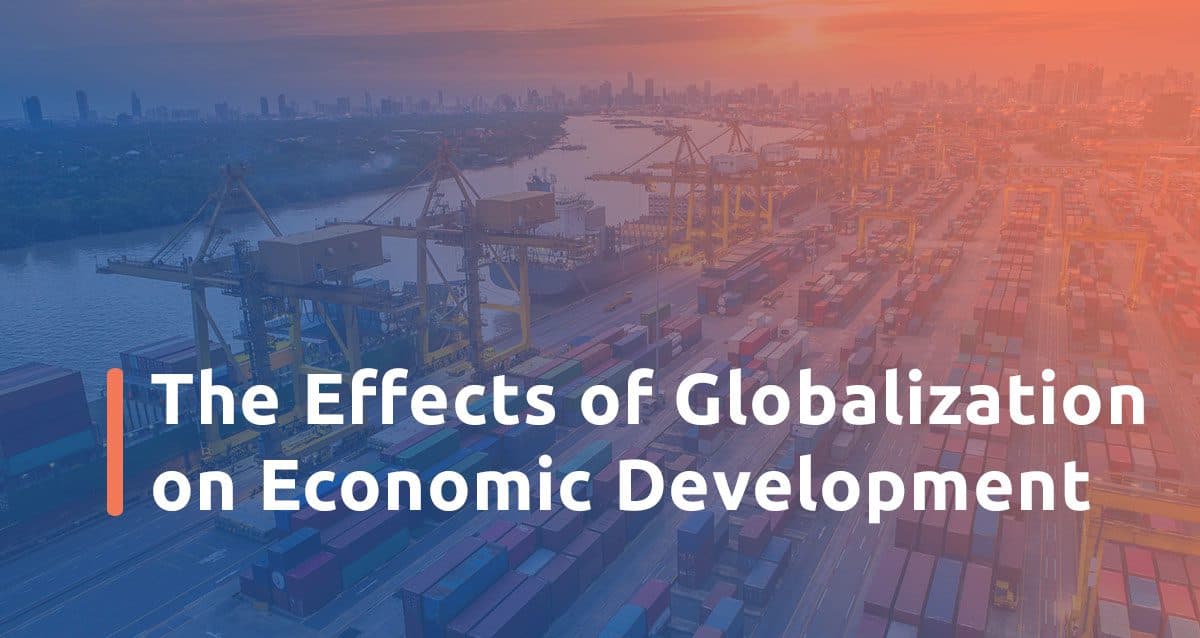This article was published in Economic Development Now, an online publication available to members of the International Economic Development Council, and is being reprinted with its permission. To have access to IEDC’s journal and on-line articles and its many services, you can become a member by visiting https://www.iedconline.org/
Well before the Trump administration launched a trade war with China and the Covid-19 outbreak emerged there in December, globalization had decelerated due to increased government scrutiny of takeovers by foreign companies, barriers to trade in services, a less favorable investment climate and, more recently, slowing growth around the world.
International trade had been an engine for growth since the 1960s, with globalization taking off in the 1980s as companies ramped up overseas operations, shifting jobs and activities abroad. But while there is a pervasive belief that the world is becoming increasingly global, the truth is globalization peaked in the mid-2000s, and growth in foreign direct investment (FDI) since then has been weak.
Recent indicators help to flesh out the trend. FDI fell for the fourth straight year in 2019, by 1 percent, reaching its lowest level since 2010 when companies abandoned plans in the aftermath of the financial crisis, according to the United Nations Conference on Trade and Development (UNCTAD). Foreign investment in the United States dropped by 1 percent as well last year.
Global trade volumes fell 0.4 percent in 2019, reflecting the U.S. trade war with China, President Trump’s threats to impose tariffs on goods from a variety of markets, and weak growth in Europe, particularly Germany, and China. The one-year decline represents the first drop in global trade since 2009.
Related to globalization is offshoring — which includes procurement as well as FDI to supply the domestic market from lower-cost countries — a phenomenon that appears to have plateaued due to multiple factors, including higher labor costs in target countries.
The primary factor behind the recent slowdown in foreign investment is market uncertainty over the international trade climate.
“Multinationals are not significantly expanding their global operations, due to regulatory uncertainty and trade tensions. They are restructuring their global value chains by relocating some segments for geopolitical risk aversion,” James Zhan, director of UNCTAD’s investment and enterprise division, told the Wall Street Journal in January.
By no means is globalization going into reverse, as international trade in digital commerce is growing rapidly at the same time that cross-border flows of goods and FDI have lost momentum.
Foreign investment anemic over past decade
Two factors largely explain the lackluster performance in FDI over the past 12 years. One is that many nations are more closely reviewing foreign companies’ proposals to acquire local ones, said Gary Clyde Hufbauer, a nonresident senior fellow at the Peterson Institute for International Economics. While FDI commonly is thought of as a company’s investment in a new factory or offices, mergers and acquisitions account for about two-thirds of FDI, Hufbauer explained.
In the United States, Congress and the administration have been paying particularly close attention to proposed investments in U.S. companies involving technology or that potentially could jeopardize national security. “This is a big reason why FDI is not growing as robustly as it might,” he said.
The other factor is restrictions on international trade in services, which represent more than half of foreign investment. Those barriers are high and can’t easily be surmounted by establishing a branch or a subsidiary in a foreign country, Hufbauer said. “That is [another] reason why FDI has not grown as briskly as it might have,” he said.
Factors particular to the decline in foreign investment in the United States include the rise in the value of the U.S. dollar and the tightening labor supply, said Harry Moser, founder and president of the Reshoring Initiative.
Questioning the global supply chain
Even before the Covid-19 contagion, manufacturers began to question the wisdom of relying on globalized supply chains after the months-long, U.S.-China trade war and the threat of further tariff disputes. All of these concerns likely point to a lower reliance on offshoring.
“I guess we have a pause now. Multinationals have multiple reasons to reconsider any expansions of [globalized] supply chains,” Hufbauer said.
Once the pandemic is over, manufacturers may consolidate operations to a lower-cost location, said Bruce Takefman, founder and president of ResearchFDI. “It might create a mindset to look at the local supply chain first,” he said.
Beyond manufacturers’ concerns over supply disruptions, a multitude of reasons already have caused offshoring to plateau, Moser said. The market’s shift to online commerce, with its need for immediate replenishment of stock, is one factor. If a company relies on local suppliers, it will be better poised to fulfill a surge in orders, he said.
Manufacturers’ adoption of automation, which reduces the amount of labor to make goods, is another reason. The savings in labor costs from manufacturing overseas also has shrunk. Average wages for the workforce in China once represented only 3 percent of wages for U.S. workers, but now are 20 percent of U.S. wages, Moser explained. Labor productivity in China has increased, however, he added.
Other factors include a greater recognition of the costs, particularly shipping costs, associated with offshoring and a strengthening of the U.S. skilled workforce.
Over time, Moser anticipates the economy’s reliance on offshoring will decline. “The world may be flat but it is not frictionless,” he said.
Increased flows from developing countries
Overseas investment by businesses around the world is expected to remain stable in the near future, according to experts. “I don’t see anything on the horizon that would cause it to dramatically increase or dramatically decrease,” said John Marthinsen, professor of economics and international business at Babson College.
Of course, the covid-19 pandemic has raised the risk of a global recession, raising the likelihood that multinational companies will postpone planned foreign investment in the near term, he said. “If you postpone FDI now, you can [still] do it later,” Marthinsen said.
The various reasons that motivate companies to invest in foreign countries — including benefiting their supply chain, reaching new markets and taking advantage of economic opportunities — will continue to apply. “It’s just good business,” he said.
In fact, Moser anticipates renewed growth in FDI over the long term. “FDI has been down, but it will recover,” he said, adding that the covid-19 epidemic likely would delay an uptick.
One dynamic driving growth in foreign investment in the United States is the emergence of a number of large manufacturing firms in Asia with competitive products that want to build factories in the United States to serve the world’s largest consumer market.
Hufbauer, however, does not believe FDI in manufacturing facilities will spur significant growth in overseas investment. It’s more likely to remain flat and, possibly, decline due to technologies such as 3D printing.
There are several bright spots serving to sustain globalization. For the first time in history, emerging economies are counterparts on more than half of global trade flows. And ‘south-south’ trade — trade between developing countries — represents the fastest-growing component of global commerce.
But the “star of the moment” is digital commerce, which is experiencing rapid global growth, Hufbauer said.
The volume of international data flows is growing faster than trade or financial flows, and its positive contribution to global GDP is offsetting the lower growth rates of trade and FDI. Cross-border data flows comprise a range of activities involving both goods and services, including e-commerce, social media, telemedicine, big data analytics, cybersecurity and data storage. Digital commerce also includes the movement of data to facilitate the Internet of Things, additive manufacturing and the tracking of global supply chains.
At this point in time, though, it’s not clear how long digital commerce will continue fueling trade growth, particularly as many countries begin to erect barriers to the free exchange of data, he said.
About ResearchFDI, Inc.
Based in Montreal, ResearchFDI is a specialized market research firm that provides customized lead generation and business intelligence services for economic development organizations and regional promotion agencies, intended to identify and capture FDI and direct investment opportunities. We position Economic Developers in front of corporate decision-makers that are seeking to expand or relocate their businesses to new geographic locations. We are focused on helping our clients create important business relationships that will serve to grow awareness of their region, promote its economic strengths and attract direct investment.
Read also:



